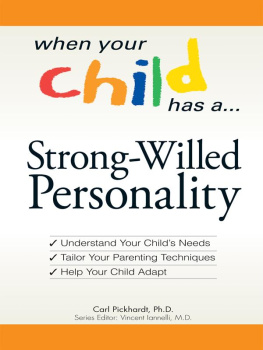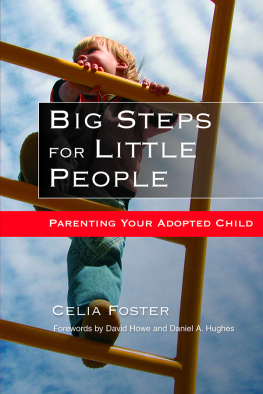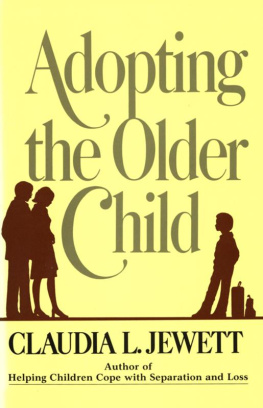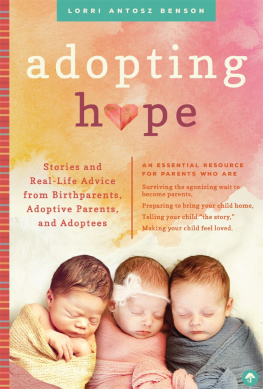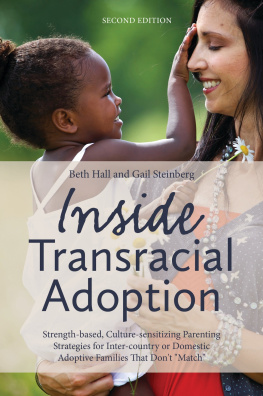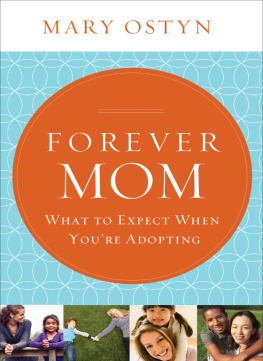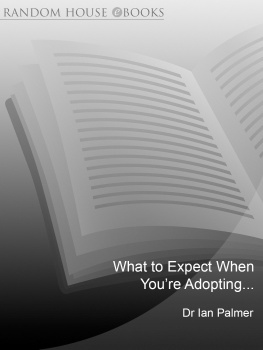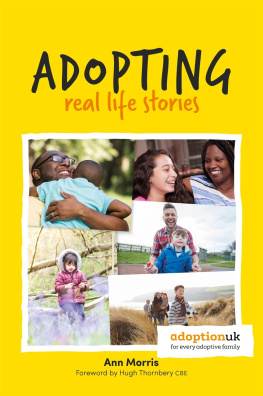Stephanie Bosco-Ruggiero - Adopting Older Children: A Practical Guide to Adopting and Parenting Children Over Age Four
Here you can read online Stephanie Bosco-Ruggiero - Adopting Older Children: A Practical Guide to Adopting and Parenting Children Over Age Four full text of the book (entire story) in english for free. Download pdf and epub, get meaning, cover and reviews about this ebook. year: 2014, publisher: New Horizon Press, genre: Children. Description of the work, (preface) as well as reviews are available. Best literature library LitArk.com created for fans of good reading and offers a wide selection of genres:
Romance novel
Science fiction
Adventure
Detective
Science
History
Home and family
Prose
Art
Politics
Computer
Non-fiction
Religion
Business
Children
Humor
Choose a favorite category and find really read worthwhile books. Enjoy immersion in the world of imagination, feel the emotions of the characters or learn something new for yourself, make an fascinating discovery.

- Book:Adopting Older Children: A Practical Guide to Adopting and Parenting Children Over Age Four
- Author:
- Publisher:New Horizon Press
- Genre:
- Year:2014
- Rating:3 / 5
- Favourites:Add to favourites
- Your mark:
Adopting Older Children: A Practical Guide to Adopting and Parenting Children Over Age Four: summary, description and annotation
We offer to read an annotation, description, summary or preface (depends on what the author of the book "Adopting Older Children: A Practical Guide to Adopting and Parenting Children Over Age Four" wrote himself). If you haven't found the necessary information about the book — write in the comments, we will try to find it.
Are you thinking of adopting an older child? There are 200,000 plus hoping for families in the U.S. alone and more worldwide. Adopting an older child, though, presents a unique set of parenting issues as well as rewards.
Adopting Older Children highlights the most significant challenges when parenting older adoptees who face mental health, behavioral and educational issues. Included is critical information about developmental issues that may arise for the adoptee, issues related to the adoptees emerging sense of self, sexual orientation and cultural identity and other special needs that an adoptee may have. This will help prospective parents be aware of concerns that can arise for their adopted children and help current parents deal with the difficulties their children may be facing. An older adopted child may face a list of problems, included is a comprehensive overview of clinical and other problems that may arise and how to successfully deal with them.
Authors Bosco-Ruggiero, Wassel and child welfare expert Groza deliver a comprehensive guide to navigating the adoption processes domestically and internationally, coping with transition and family dynamics and to educating others about adoption. Adopting Older Children not only focuses on preparing the family unit but offers chapters to better understand the personality, background and problems of your adopted child. It provides methodology to comprehend and cope with the traumatized child, grief and loss, attachment issues, development and learning, mental health concerns, physical health (fetal alcohol syndrome, abuse, etc.) as well as providing critical resource information for adoptive parents (single, LBGT or older adoptive parents).
Practical and extensive, Adopting Older Children furnishes key parenting strategies and insights in a clear, sensitive style, becoming the definitive resource for adoptive parents and professionals.
Stephanie Bosco-Ruggiero: author's other books
Who wrote Adopting Older Children: A Practical Guide to Adopting and Parenting Children Over Age Four? Find out the surname, the name of the author of the book and a list of all author's works by series.

